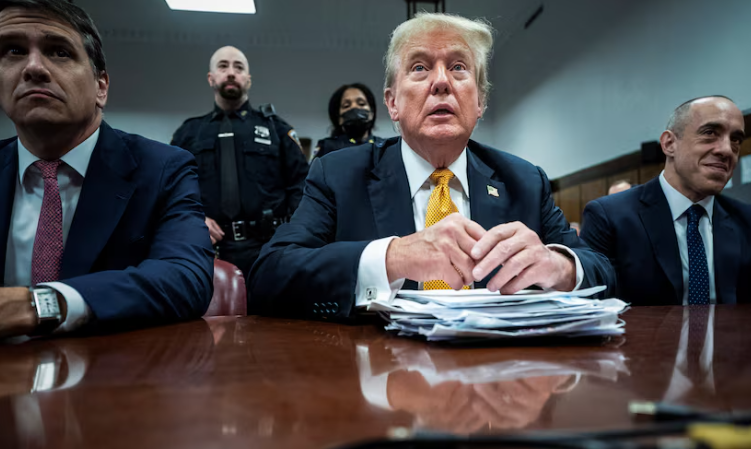Former President Donald J. Trump suffered a major legal defeat Friday after U.S. District Judge Beryl Howell struck down his Executive Order 14230, which had imposed sweeping federal sanctions against the prominent law firm Perkins Coie LLP.
The court ruled that the order was an unconstitutional abuse of executive authority and a retaliatory attack on the independence of the legal profession.
In a sharply worded 102-page opinion, Judge Howell described the executive order as a “cringe-worthy twist” on Shakespeare’s infamous line from Henry VI, warning that the attempt to punish Perkins Coie for its past political affiliations echoed “authoritarian instincts” and posed a grave threat to the rule of law.
“The first thing we do, let’s kill all the lawyers,” Howell quoted, adding, “Eliminating lawyers as the guardians of the rule of law removes a major impediment to the path to more power.”
Executive Overreach and Retaliation
Trump’s executive order, issued March 6, had directed all federal agencies to:
- Suspend security clearances for Perkins Coie staff
- Terminate all government contracts with the firm
- Restrict access to federal facilities
- Subject internal employment practices to federal review
While the order accused the firm of engaging in “dishonest and dangerous activity,” the court found the claims to be factually unsupported and politically motivated, calling the justification a “manufactured narrative” meant to disguise retaliation for Perkins Coie’s past representation of Democratic interests.
Judge Howell ruled that the executive order violated multiple constitutional protections, including the:
- First Amendment (freedom of speech and viewpoint neutrality)
- Fifth Amendment (due process)
- Sixth Amendment (right to counsel)
The court granted summary judgment in favor of Perkins Coie and issued a permanent injunction barring enforcement of the order.
Chilling Effect on Legal Representation
The court found that the executive order chilled Perkins Coie’s ability to represent clients, damaged its client relationships, and interfered with attorney-client communications, particularly in matters involving the federal government.
Judge Howell stressed the broader implications, noting that attacks on law firms for representing controversial clients “undermine the foundations of a free society.”
The ruling warned that Trump’s executive action represented an impermissible “use of purely personal and arbitrary power”, and was “an overt attempt to suppress and punish” the firm for its protected speech and associations.
Legal Community Unites in Rare Consensus
The case prompted wide-ranging support from the legal community. Dozens of amicus briefs were filed by hundreds of law professors, retired judges, and legal organizations across the political spectrum. All expressed concern that the executive order was a dangerous effort to politicize legal advocacy and threaten the adversarial legal system.
Judge Howell invoked historical precedents, from John Adams’ defense of British soldiers after the Boston Massacre to Alexis de Tocqueville’s writings on American lawyers, affirming that the ability of attorneys to represent unpopular clients without government retaliation is a bedrock of American democracy.
“Government officials may neither use the power of the State to punish or suppress disfavored expression, nor engage in the use of purely personal and arbitrary power,” Howell wrote. “The appropriate response to dissenting or unpopular speech is tolerance, not coercion.”

